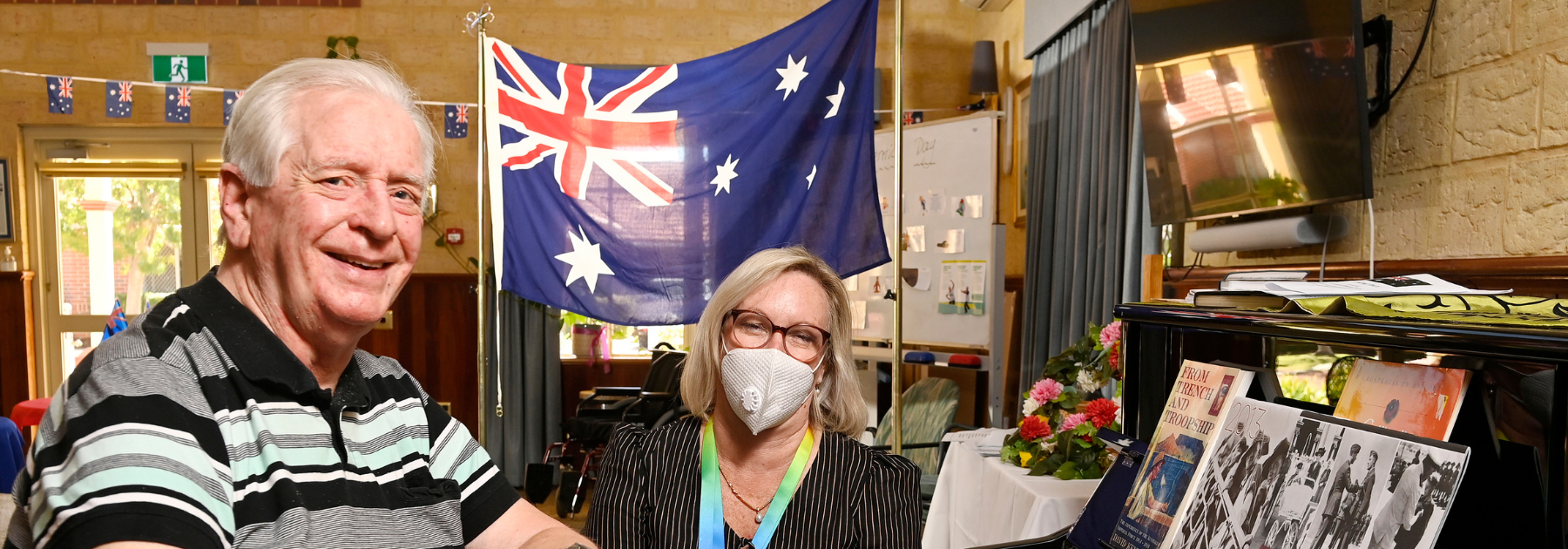
Prepare, Prevent, Protect

Why did we do this research?
The COVID-19 pandemic, declared in March 2020, caused major disruption and posed serious health risks, especially for older people living in residential aged care facilities (RACFs). Even though aged care homes had managed outbreaks before, COVID-19 was new and unfamiliar, larger in scale, and more complex to manage. To stop the virus from spreading, strict restrictions and new work practices were put in place, including limiting visitors, isolating residents, and changing how staff worked. These rules were frequently updated in response to changing cases and guidelines, adding stress and making things even harder for aged care homes.
Stopping a virus from spreading is crucial, but it is also important to protect the overall wellbeing of residents, their families, and staff.
The unique characteristics of aged care residents and staff makes this even more challenging. Many residents have cognitive impairment, which means they have difficulty thinking clearly, remembering things, or making decisions. At the same time, the workforce caring for them is culturally and linguistically diverse (CALD). This means staff come from many different countries, speak various languages, and bring unique cultural perspectives. Their backgrounds can enrich care, but it also means they have different needs and face different challenges.
What did we do?
The main goal of this three-part study was to understand how COVID-19 impacted residents, families, and staff in aged care homes. As part of this, the study looked at how certain groups, like residents with memory and thinking problems and staff from different cultural and language backgrounds, experienced the pandemic and the challenges it brought.
The study was a collaboration between five large not-for-profit residential aged care service providers in Western Australia.
The three parts of the study
- Review of the literature
This study looked at existing information, including official research and reports, to understand how the COVID-19 pandemic affected staff and clients at residential aged care homes. - Surveys of staff, clients and families
These three key groups were surveyed to understand how the COVID-19 pandemic affected them. The goal was to gather information that would help improve planning and make things better for residents, their families, and the aged care workers during a pandemic. - Analysis of medical records
The study looked back at medical records from 2020 to understand how COVID-19 social restrictions affected the physical and mental well-being of people living in residential aged care.
What did we find?
The COVID-19 pandemic had a serious impact on residential aged care, affecting the mental, physical, and cognitive (brain) health of residents, as well as the wellbeing of their families and the aged care workforce. This was seen in survey responses and medical information and echoed in broader research. The study also captured how cultural background and levels of cognitive impairment shaped people’s experiences under strict outbreak measures
The results highlight the need to consider how we look after each person’s wellbeing while also protecting public health (by reducing the spread of the virus). It also showed that aged care services need to work together more closely. What we’ve learned should help us plan better for future outbreaks
Project Information
Lead Researcher(s)
Dr Angelita Martini
Brightwater Research Centre
Meet the Brightwater Team
Dr Lakkhina Troeung
Dr Michael Clark
Dr Dayna Cenin
Dr Somayyeh Azimi
Partners
University of Western Australia
Funded By
LotteryWest
Status
Completed 2024